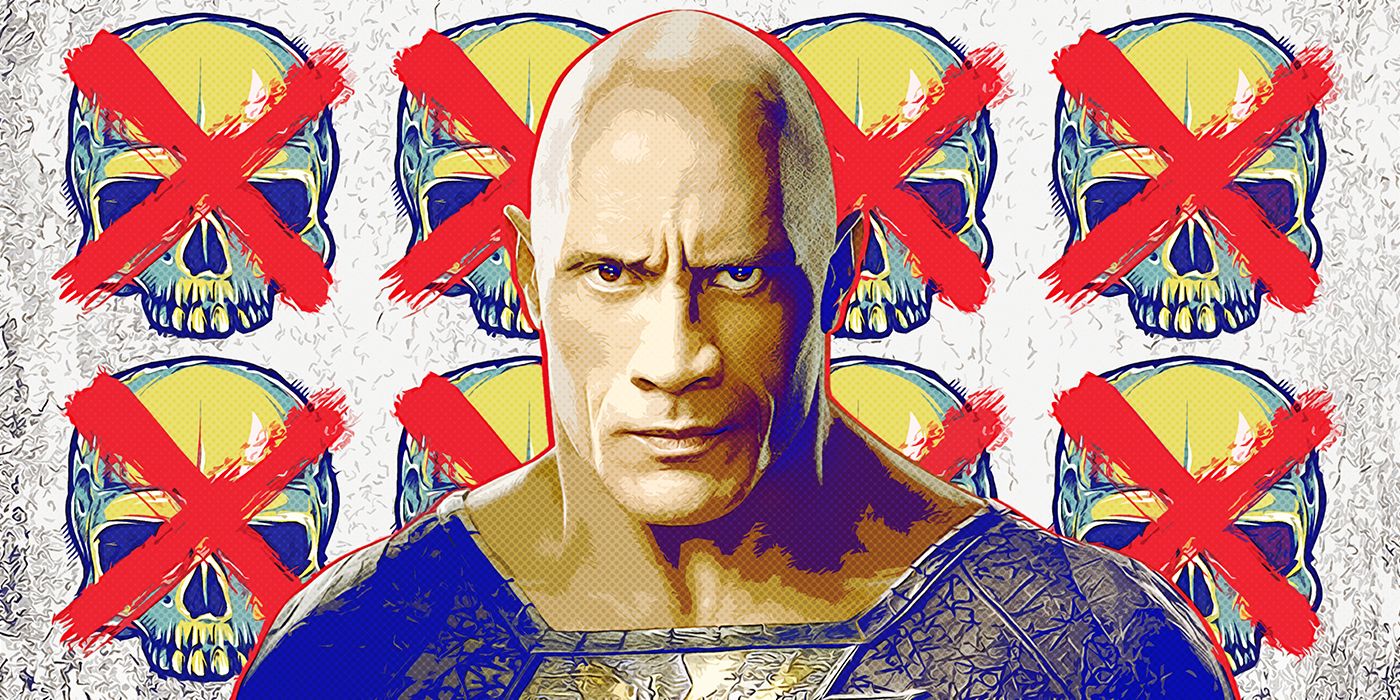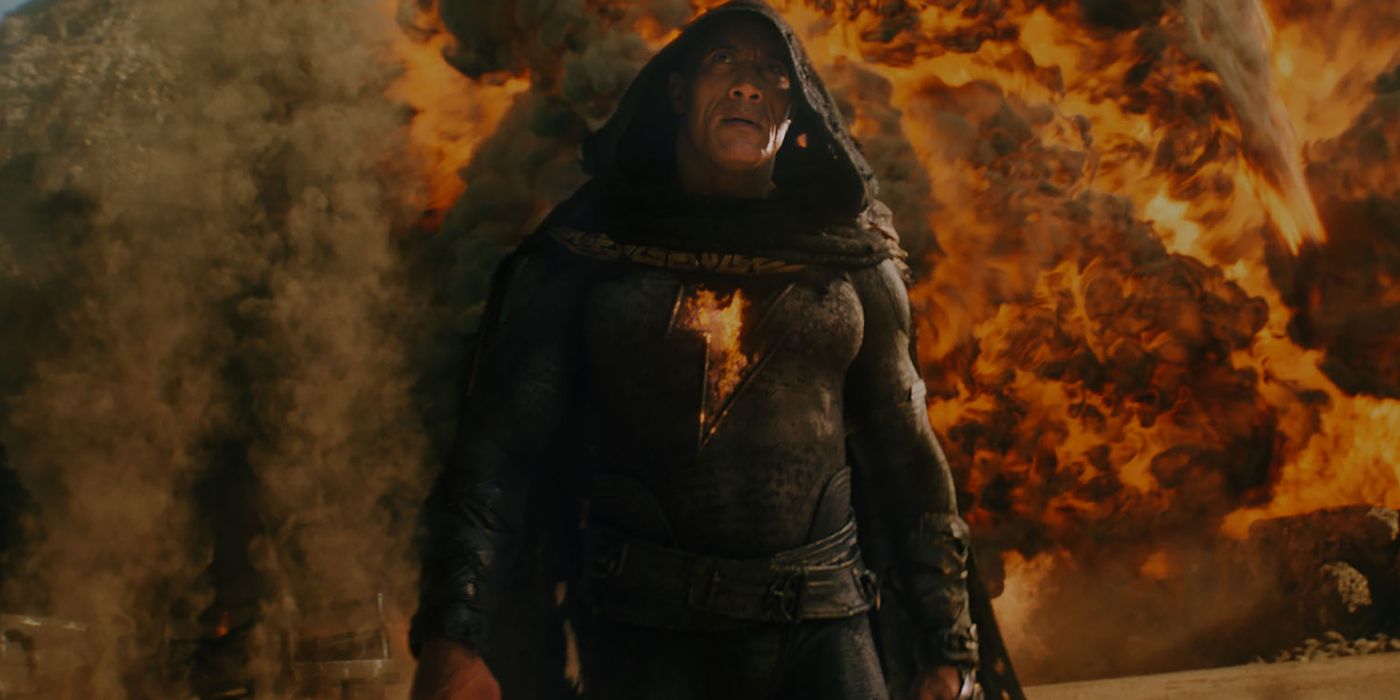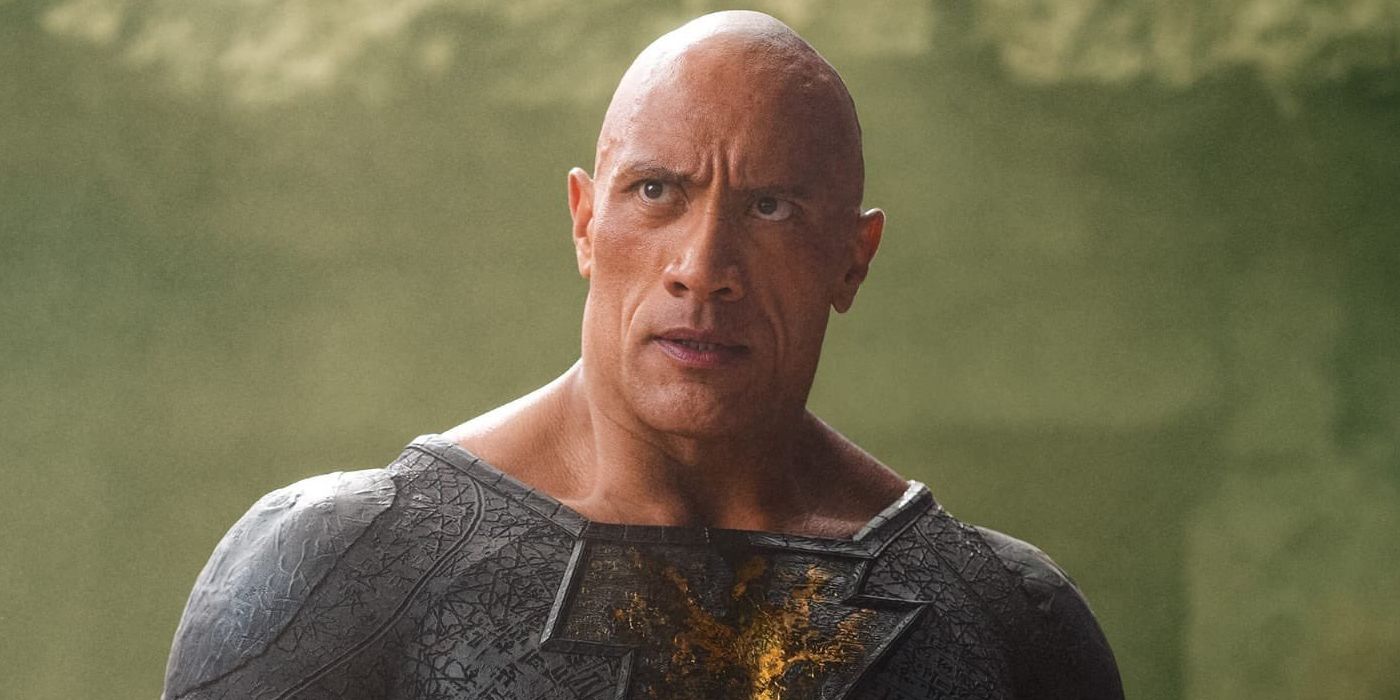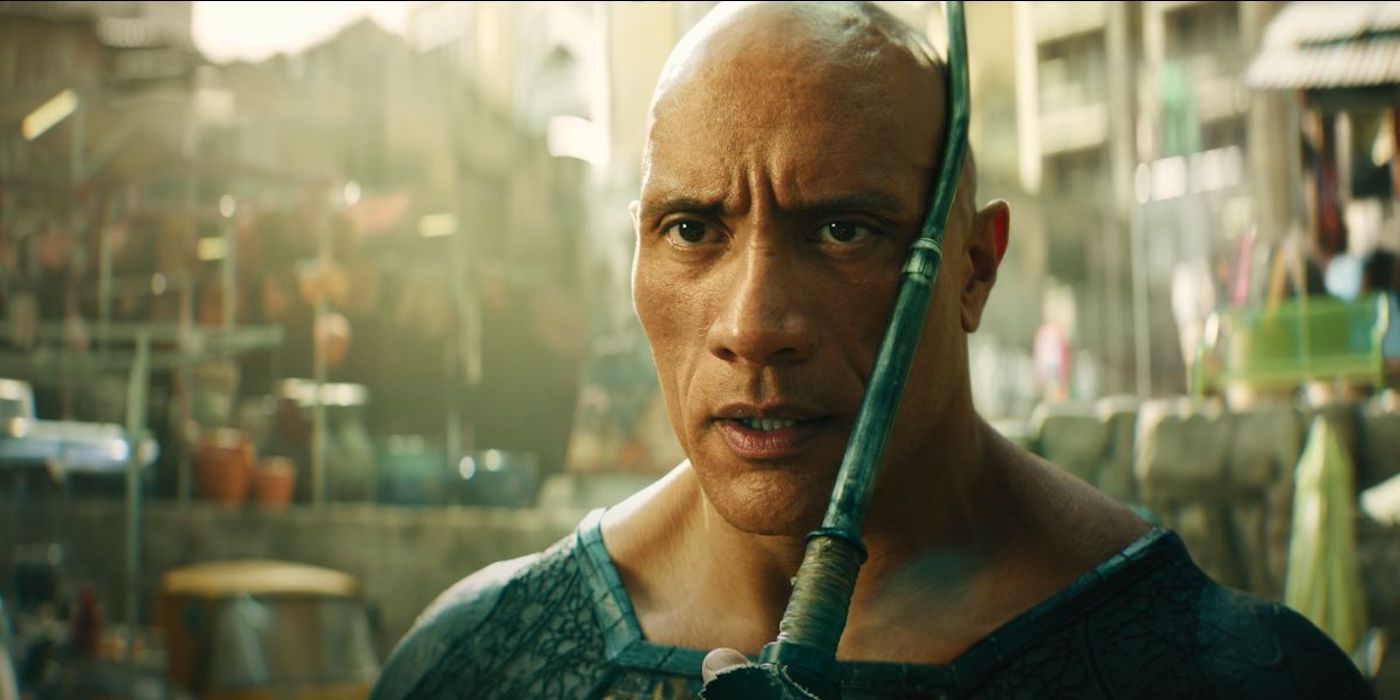Editor's Note: The following contains spoilers for Black Adam.
Black Adam's kill count has been the subject of much speculation and analysis, especially since director Jaume Collet-Serra revealed that the film was subjected to multiple rounds of edits, cutting out several of the more graphic murders to get a PG-13 rating. So how many people does Dwayne Johnson's new DCEU hero actually kill in the movie? The short answer is, a lot.
It's impossible to get an exact number, because in multiple scenes Adam kills dozens of people at once, whether through explosions, electrocution, or some other means. Even with a pause button, you can't actually see every individual who dies in these mass executions. But here's our best estimate.
At the beginning of the film, Adam kills the evil Kahndaq king Ahk-Ton and destroys his castle, killing everyone in it. We don't know for sure how many people are in the building at the time, but the few brief glimpses that we get during this scene and a later flashback show at least several dozen.
When archeologist Adrianna Tomaz (Sarah Shahi) first awakens Adam from his 5,000-year slumber, she and her team are under attack by Intergang soldiers. Adam kills at least 12 of the soldiers in the caves where his tomb resides, another four in helicopters outside, then a minimum of 50 (and potentially a lot more) in a slow motion battle scene that involves a lot of rockets, explosions, and lightning power. As the action of that scene winds down, Adam takes time for about six more personal kills, including flinging a few soldiers several thousand yards and dropping others from the clouds.
Later, as Adrianna's son Amon flees from Intergang henchman inside his apartment building, Adam kills around a dozen more of them, plus three drivers of flying bikes in a fast-paced aerial chase sequence. After bad guy Ishmael kidnaps Amon and takes him to his hideout in a mine, Adam arrives to rescue him. There, he kills at least 13 people, including Ishmael himself. Ishmael is later resurrected as the demon Sabbac, and Adam kills him again by ripping him in half.
Hint: It's A Lot of Kills
Taking the low estimate in each case of uncertainty, Black Adam kills a minimum of 150 people over the course of the film.
Although it doesn't hold a candle to his kill count in the comics, that's a lot of death for a family-oriented superhero movie, but it's far from a record, as some have posited. In Man of Steel, during his final fight with Zod, Superman destroys entire skyscrapers which, the film makes a point of showing, are full of people. In the densely populated Metropolis, this would amount to a death toll of tens or perhaps hundreds of thousands, and although he does it in pursuit of stopping a villain who intends to kill far more, he might have made a bit more effort to lure Zod away from the crowded city center. (Batman v Superman: Dawn of Justice seems to acknowledge this when Batman makes a point of saying that the port to which he lured the monster Doomsday is abandoned.) And of course, although we don't actually see most of Avengers: Infinity War's deaths on-screen, it's likely no one will ever approach Thanos's record of snapping away half of the sentient beings in the universe in one movie.
So why was it so difficult for Black Adam to work its way down to a PG-13 rating? For one thing, the deaths are more personal. We see faces; we hear crunching. Although there's very little blood in the film, some of the deaths are pretty visceral. There's no gentle fading away to dust, no rubble conveniently hiding the bodies. There's also a wantonness to the killing that we haven't seen in a superhero movie since Deadpool, which of course is rated R. Immediately after his awakening, Adam doesn't know that Intergang are the bad guys; he's not murdering them out of some sense of justice or duty. He kills them simply because they get in his way, and later, because they threaten the family he's come to care about. That said, whether intentionally or not, he does only kill bad guys, whereas the collateral damage laid at Superman's feet consists almost entirely of innocent people.
Black Adam Isn't the Only Superhero Who Kills
Near the midpoint of the film, after the Justice Society has realized they can't defeat Adam using force, Hawkman (Aldis Hodge) confronts him about his penchant for murder. "In this world, there are heroes, and there are villains," he says. "Heroes don't kill people!"
But isn't this just in-universe propaganda made up by the heroes themselves? Even aside from the mass death in Man of Steel, the DC heroes have dozens of kills to their names, from Batfleck harpooning cars and using them as projectiles, to Wonder Woman throwing soldiers out of windows, to Aquaman callously walking away as Black Manta's father drowns (yes, Arthur and Bruce, letting someone die whom you could easily save is the same as killing them). And let's not forget Superman savagely snapping Zod's neck. The Dark Knight, too, makes much of his "one rule," but he breaks it repeatedly throughout his trilogy: he burns down a building with about a dozen members of the League of Shadows inside; he throws Harvey Dent off another building; and he shoots Talia al Ghul's driver in his attempt to stop their nuke-bearing truck. There is no question that superheroes in the DCEU kill people.
Black Adam, of course, repeatedly insists that he's not a hero, and most people would probably agree. Even the people of Kahndaq don't call him a hero; they call him a champion. And champions don't necessarily have to be good guys. But whether you call him a hero, an antihero, a champion, or a villain, he's more morally complex than the superheroes we're used to. He's an appropriate figurehead for his film, which raises some interesting questions about the ethics of interventionism and the right of superheroes to dictate morality for others. And his story leaves a lot of room for compelling character growth in future films in the rapidly expanding DCEU.




